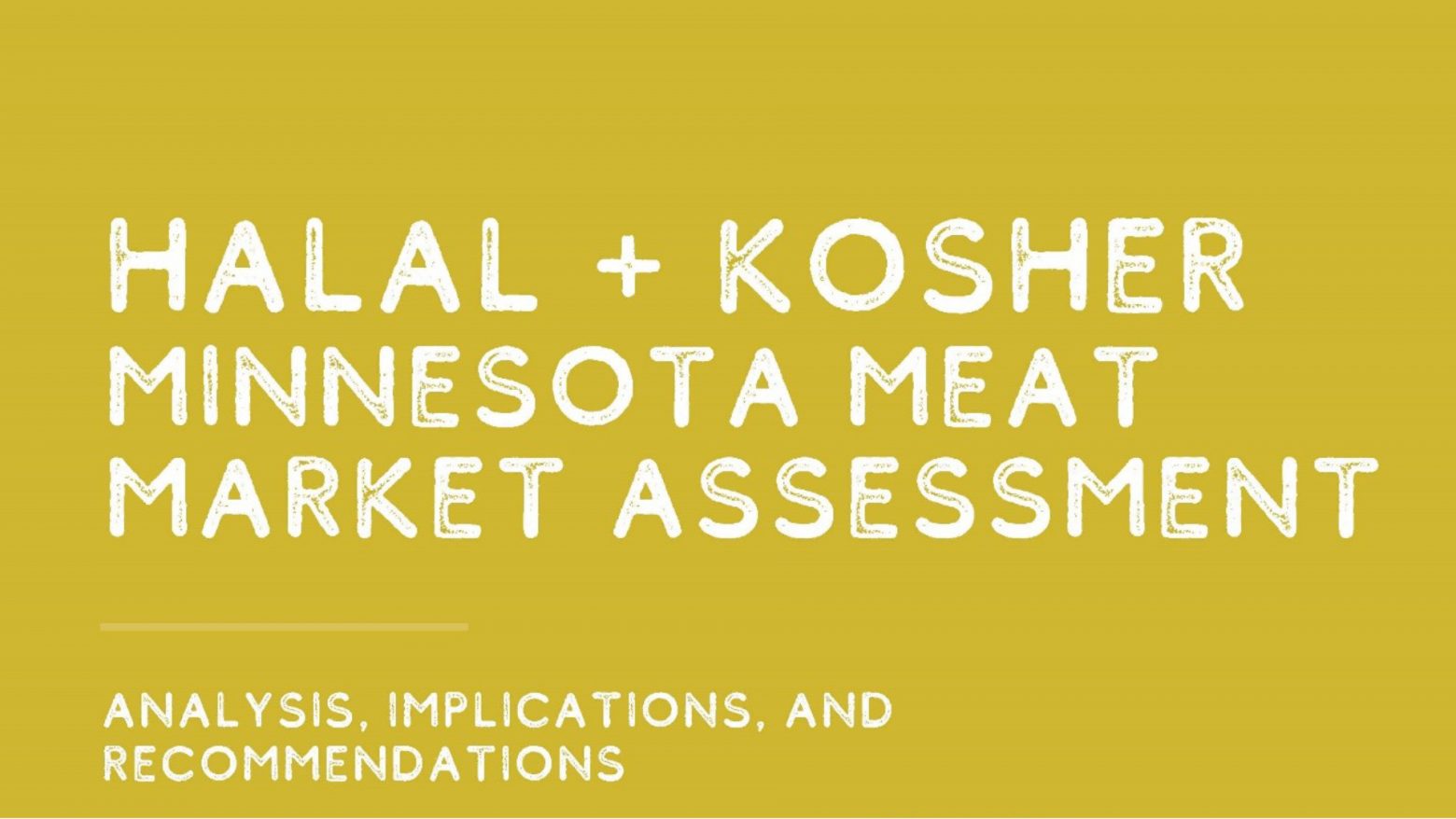The markets for halal and kosher meat in Minnesota hold untapped potential for communities throughout the state. On the consumer side, Minnesota is home to thousands of people with an unmet preference for fresh, high quality, and affordable meats processed using halal or kosher methods. On the producer side, many farmers and ranchers across the state are looking for new markets and have an interest in serving these consumers. Each stop along the supply chain requires understanding the requirements for halal and kosher production. No single barrier stands in the way of entering either of these markets; instead, a lack of information about requirements and a lack of relationships among farmers, brokers, processors, and retailers have kept these markets fragmented.
This report is intended to provide a landscape view of the markets for both halal and kosher meats in Minnesota. The issue of halal and kosher meat availability was identified by the Minnesota Department of Agriculture (MDA) and the Agricultural Utilization Research Institute (AURI). The two sets of practices are paired together in this report because of their similarity as religious categories of meat production. Halal and kosher meats are similar in some ways, but different in many others. Most common types of meats, such as beef, chicken, lamb, goat, and fish, but specifically excluding pork, can be halal or kosher. While this report attempts to assess the broad markets for both halal and kosher, it provides a specific focus on the market for halal goat meat due to the currently undeveloped local food system and unmet consumer demand for this meat in particular in Minnesota. Minnesota’s halal consumer base is larger than the kosher consumer base, which from a market assessment perspective makes halal a larger opportunity for farmers and entrepreneurs. However, the kosher market, as detailed in the kosher section of this report, presents distinct opportunities as well.
This report is structured in five main parts:
- Overview: The overview provides information relevant to both halal and kosher
markets and includes regulatory oversights, seasonality, meat processing
availability and animal welfare rules. - Kosher practices and markets: This section will provide an in-depth look at the
kosher market, with information on criteria, barriers to market growth, and
consumer concerns and preferences. - Halal practices and markets: This section will provide an in-depth look at the
halal market, with information on criteria, barriers to market growth, and
consumer concerns and preferences. - Goats in Minnesota: Because goat meat is of primary importance in the halal
market, this section will present a close look at the challenges and opportunities
for raising meat goats in Minnesota. - Recommendations and Appendix
To download the full report, click here.
To download the overview sheet, click here.
